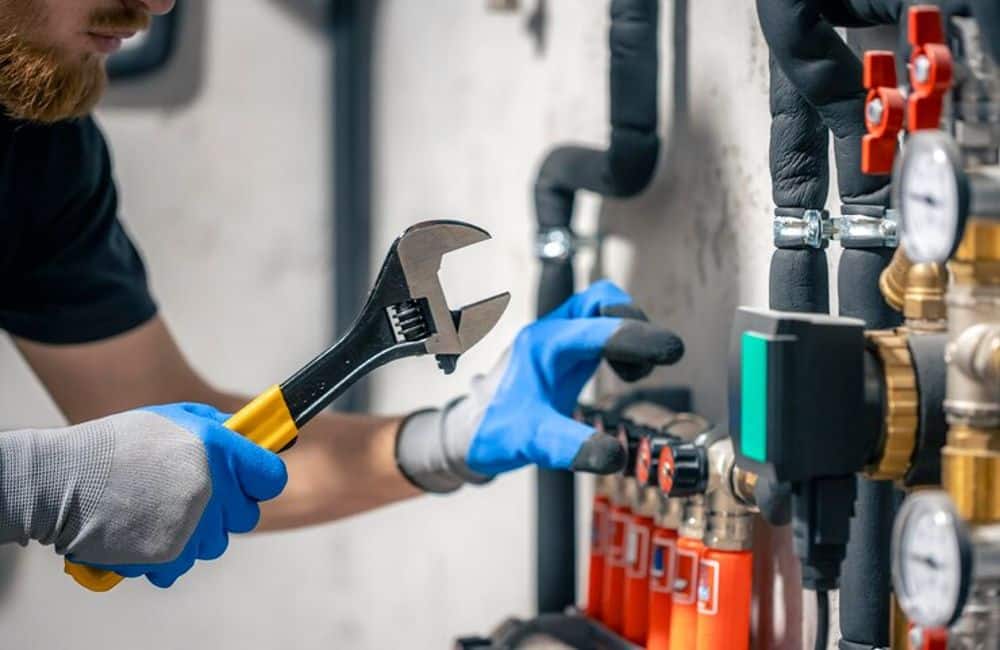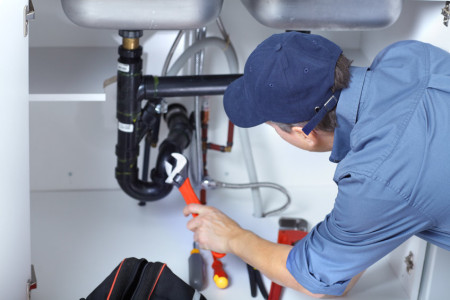Addressing Emergency Plumbing Problems: Fast Tips Until Professional Help Arrives
Addressing Emergency Plumbing Problems: Fast Tips Until Professional Help Arrives
Blog Article
Presented here further down you can get some exceptional points in regards to Expert Tips for Managing a Plumbing Emergency Until Help Arrives.

Pipes emergency situations can strike any time, triggering anxiety and prospective damage to your home. Whether it's a ruptured pipeline, a clogged up drainpipe, or a leaking faucet, recognizing just how to take care of the scenario up until an expert plumbing arrives can save you from further difficulties. This write-up supplies necessary emergency plumbing tips to aid you minimize damages and restore control during a pipes situation.
Shut off the Supply Of Water
The initial step in any pipes emergency situation is to turn off the water supply. For local problems, such as a leaking faucet or commode, shut off the valve near the component. When it comes to a major leak or ruptured pipe, locate your home's major water shut-off shutoff and turn it off quickly. Recognizing the place of these valves ahead of time can save valuable time throughout an emergency.
Shut Off Your Hot Water Heater
In certain emergency situations, such as a ruptured pipeline, it's smart to shut off your water heater. This prevents overheating or damages to the system when water quits flowing. Switch off the power supply to the water heater (electrical or gas) and allow it cool down to prevent potential dangers.
Temporarily Quit a Burst Pipeline
A burst pipeline can result in substantial water damage in mins. To reduce the concern:
Call an expert plumber right away to address the issue completely.
Have an Emergency Pipes Package
Prepare a fundamental pipes emergency set to take care of minor problems effectively. Your set must consist of:
Having these tools available can make a considerable distinction in your capacity to manage emergencies.
Unclog Drains Safely.
A stopped up drainpipe can be an irritating and unpleasant issue. Here's exactly how to tackle it:.
If these approaches do not work, prevent utilizing too much pressure, as it might get worse the blockage.
Manage Overflowing Toilets.
An overflowing toilet can create prompt disorder. Below's what you must do:.
Address Little Leaks with Temporary Solutions.
Tiny leakages can swiftly end up being considerable problems if left unchecked. Use these short-lived solutions up until expert help arrives:.
While these repairs aren't permanent, they can aid minimize water loss and damages.
Deal With Frozen Pipes Carefully.
In cooler climates, frozen pipelines are a typical emergency situation. If you presume a frozen pipeline:.
Know When to Call a Professional.
While quick fixes can aid briefly, particular plumbing concerns need immediate expert attention. Call a plumbing professional if:.
Promptly calling a professional makes sure the concern is fixed appropriately and avoids more complications.
Stop More Damage.
Taking fast activity to reduce damages can conserve you time and money in the future. Here's exactly how:.
Conclusion.
Plumbing emergency situations can be frustrating, but with the best understanding and devices, you can take care of the situation efficiently up until aid gets here. By turning off the supply of water, addressing small leaks, and utilizing momentary solutions, you can decrease damage and keep your home safe. Remember, these suggestions are momentary options; constantly get in touch with a licensed plumbing to deal with the source of the issue. Prep work and fast reasoning are your finest allies in any type of pipes emergency situation.
8 Helpful Tips for Managing Plumbing Emergencies at Home
If your plumbing system hasn’t failed once, wait for it because almost everyone has a story to tell. Sometimes, it could be simple emergencies such as a leaking pipe, a blocked cistern, or even a big burst pipe. In situations like this, you need to have some handy tips to save you some money and from possible damages.
Take care of minor issues early.
Sometimes, you could have avoided an emergency by taking proactive measures while it was still early. Some major plumbing emergencies can be a result of an ignored minor issue. We recommend that you have items like plumbing tapes and other related items. A plumbing tape can allow you to manage minor leaks before the plumber arrives.
Cut off the water supply.
This tip is essential in almost any type of leakage problem. For problems like minor leakages in the toilet or kitchen, turn off the supply that takes water to the affected pipes. If the leakage is a major pipe, you must shut off the supply valve to the entire building. This will help you avoid flooding your home and neighbors if you share a flat.
Know your plumbing system
Folks typically move into a new apartment without understanding the water supply around the building. This can prove disastrous if a water emergency arises and the plumber is far away. The previous tip will prove useless if you don’t practice this one. More importantly, know where your water shut-off valve is located – you’ll need that knowledge to prevent potential home floods.
Have some common handy tools
There are lots of plumbing emergencies that you can handle without hiring a plumber. That’s why you must keep some tools available always. Some tools that you can use to fix simple plumbing emergencies easily include plumbing tapes, screwdrivers, thread seal tapes, plungers, pliers, tape measures, and rubber gloves.
Insulate your pipes from cold
You’ll save yourself from many plumbing expenses if you protect your water pipes from the cold. This is because of the harmful effects that cold weather can have on your pipes. During winter, your pipes can burst from being overly expected to freezing temperatures. So, make sure insulators are there to keep the pipes working correctly.
Avoid practices that will clog your toilet.
Many people indulge in practices that can damage the plumbing system of the entire building. One of these is when they use their toilet to dispose-off garbage. They flush all kinds of things, such as paper towels, bandages, hairs, female sanitary products, etc., down the toilet. This will block your toilet in the long run, incurring unnecessary expenditures. Dump such waste in the trash instead.
Check your dials regularly.
Sometimes, there could be leakages in your home without noticing them in time. So, constantly monitor your water meter dial. If the dial is reading when there is nobody using water, this is an indicator that there is leaking. Check for leaks immediately. Call a plumber as soon as possible if you can’t find any.
https://www.constructionplacements.com/8-helpful-tips-for-managing-plumbing-emergencies-at-home/

Hopefully you enjoyed our topic about . Thanks a ton for taking a few minutes to read through our short article. Sharing is nice. Helping people is fun. I am grateful for being here. Come back soon.
Call Today Report this page